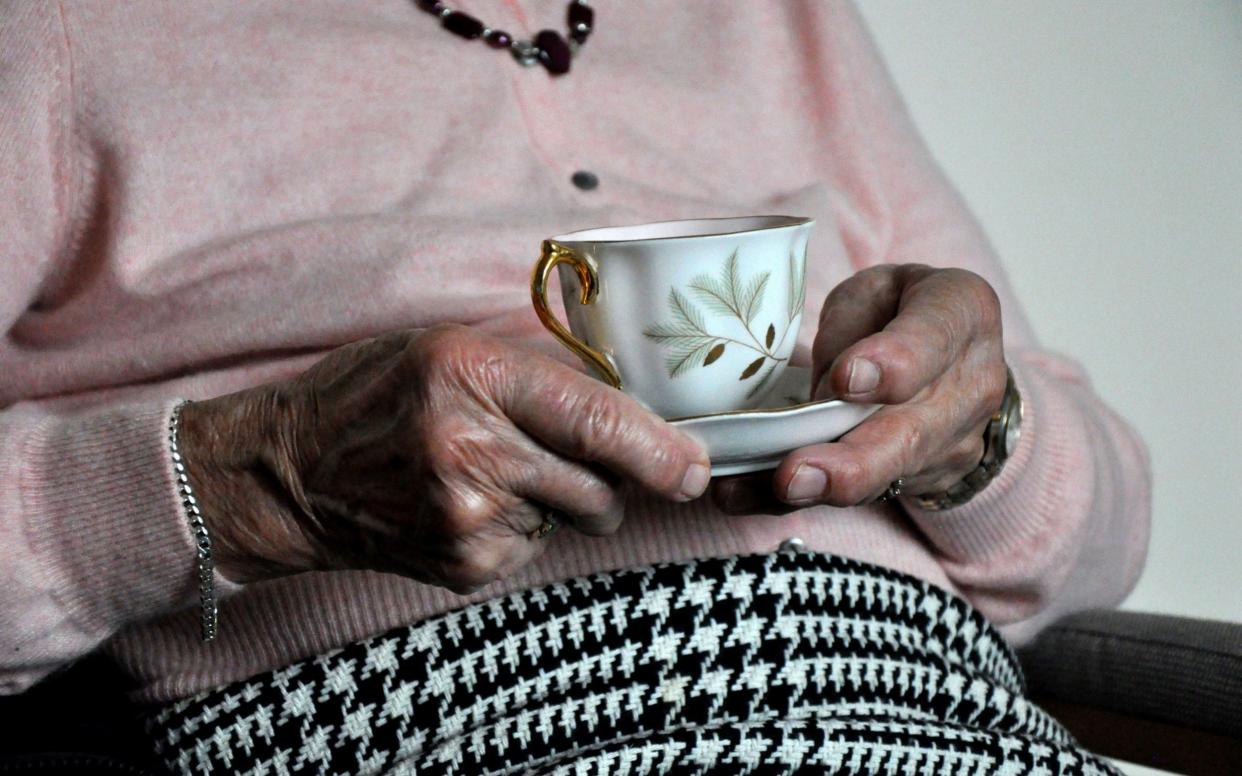'Care Isa' exempt from inheritance tax may be launched by government in bid to solve social care crisis

The Government is considering launching a “Care Isa” which would be exempt from inheritance tax, in an effort to solve the country’s social care crisis.
At present, Isas are taxed at death, so people are incentivised to spend their savings as opposed to keeping them to fund their care, which is often needed at the very end of their life.
The Treasury has been reviewing proposals to include the Care Isa in the Government’s upcoming social care Green Paper, The Telegraph can reveal.
Under the proposals, Care Isas would be capped to reflect care costs and any amount unspent could be passed on to the holder’s family when they die.
It comes as exclusive figures reveal that more than 4.3 million people over 70 have an average of £40,000 in Isa wealth. By comparison, the average amount held in cash Isas provided by NS&I is £11,886 across all age groups.
An estimate by Mark Dampier, the research director at Hargreaves Landsdowne, found that if a 30-year-old with an annual salary of around £50,000 saved £100 a month into an Isa with a growing interest rate of 5 per cent, they could expect to have an estimated £109,368 at the age of 70.
More than 12 million people over the age of 50 have saved tens of thousands of pounds into Isas, according to figures obtained by Baroness Altmann, the Conservative peer and former pensions minister.

“As these figures are an average, many will have much more saved, which could usefully contribute towards their future care needs – unless they have spent it all by the time they reach later life,” Baroness Altmann said.
“If you haven’t spent your Isas before you pass away, the money will go into your estate and could be taxed at potentially 40 per cent – so if you have large sums in Isas, there is the perverse incentive to spend them before you die.
“There is a real danger that those who have set aside these savings will really regret not having kept it for possible care needs when older.
“The majority of people do not realise the NHS will not be able to pay for their care.”
In the March 2017 Budget, the Government said that it would publish a Green Paper on social care, in order to allow a public consultation to be held. It is expected to be published by the end of this year.
The consultation was launched after the Government decided to postpone the introduction of a cap on lifetime social care charges.
The proposal of a Care Isa is one of the options currently being considered by the Treasury. Another is allowing people to take money out of their pension fund tax-free, if it is used for care. It could take the form of a tax-free lump sum insurance product. Sir Steven Webb, a former pensions minister, is understood to support this option.
“If we don’t find money to pay for social care, it will have to come from taxation,” said Baroness Altmann.
The Government is under pressure to find ways to meet the increasing demand for care, as official figures show the UK will have 9 million more pensioners within the next 50 years. The number of people aged over 65 will nearly double to more than 20 million by 2066, according to the Office for National Statistics.

It has been estimated that there will be a £5.5 billion funding gap in social care in 2020-2021, which is set to rise further to £12 billion by 2030.
Caroline Abrahams, the director of the charity Age UK, said: “Our creaking social care system has been chronically underfunded for years and will simply not be able to cope with the extra demands [of] an ageing population, unless substantially more money is found.”
The demographic shift will be particularly felt in rural areas, which already have the highest proportion of older people.
The Local Government Association, which represents councils across the country, launched its own “green paper”, intended to help come up with ideas the Government could consider to raise the additional funds needed.
One idea is that over-40s could be asked to pay a £33 annual premium, which would raise £1 billion, though the association warned that this would only be a fraction of the extra money needed.
Other suggestions included a 1p rise on the basic rate of income tax or national insurance and means-testing pensioner benefits such as the winter fuel allowance and free TV licences.

 Yahoo News
Yahoo News 
